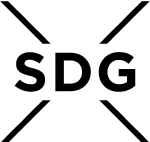While climate change is a truly universal phenomenon, some groups are significantly more affected than others. For instance, indigenous and tribal communities across the world face severe disruptions to sources of water, food, agrarian practices, and livelihoods. Women face disproportionate challenges in terms of time poverty on account of having to travel further to get work or water. Climate mitigation and adaptation projects and funding might, consciously or subconsciously, prefer communities that resemble decision-makers and lead to differential effects on people of certain cultural and ethnic makeups. Indigenous women’s lives and livelihoods are directly impacted by climate change, which is mirrored by their presence at the forefront of activism- yet, they have been negligibly represented in policies that affect them and the environment.
- What are the different pathways through which climate change affects people with different identities differently?
- How much of this is known and how much of this is a blindspot?
- How is this being currently addressed in terms of research being commissioned or decision-making processes in development funding and program design?
- What are key things that can be done going forward?
By focusing on these critical questions, this panel will seek to both draw attention to this topic and also provide tangible answers and a way forward.
Moderator for the session: Gaurav Gupta (Partner and Regional Director for Asia, Dalberg Advisors)
Speakers:

